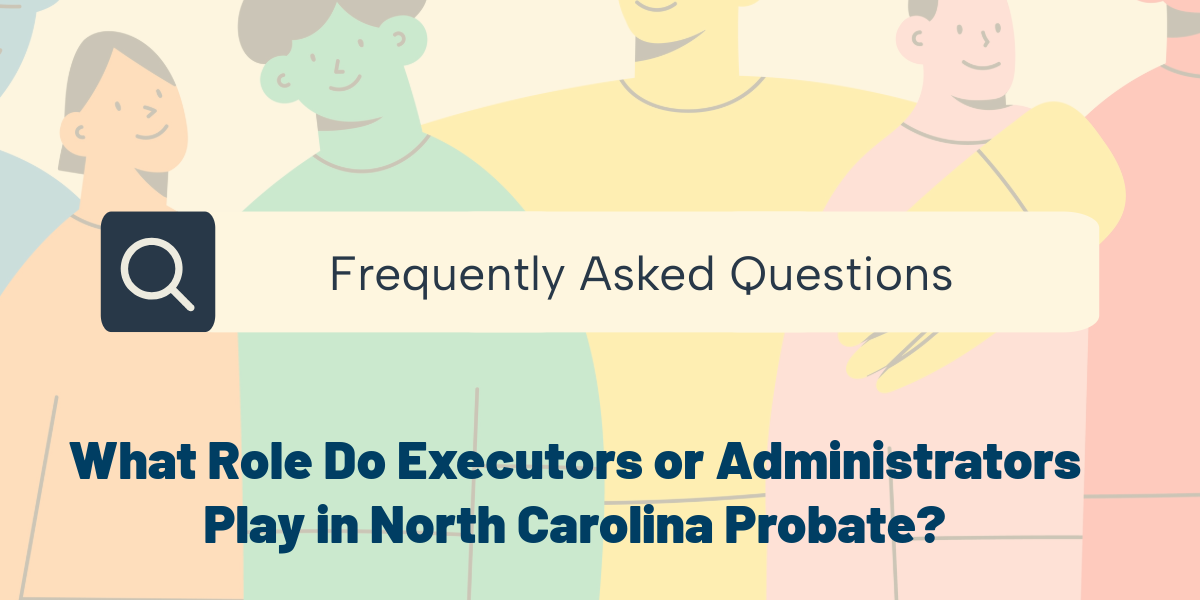What Role Do Executors or Administrators Play in North Carolina Probate?
Detailed Role of Executors and Administrators
In North Carolina probate, an executor or administrator oversees the process of settling someone’s estate after they pass away. The court appoints an executor when the deceased left a valid will, and an administrator when there is no will or the named executor cannot serve. Both serve under the authority of Chapter 28A of the North Carolina General Statutes (Chapter 28A).
Once appointed, an executor or administrator takes on several key responsibilities:
- Filing the petition with the clerk of superior court to open the estate (§28A-10-1).
- Notifying heirs and known creditors about the probate proceeding (§28A-15-1).
- Collecting and safeguarding estate assets, including bank accounts, real property, and personal belongings (§28A-2-4).
- Inventorying property and filing an inventory with the court within 90 days of appointment (§28A-13-3).
- Paying valid debts, funeral expenses, and estate taxes in the order required by law (§28A-19-1).
- Resolving disputes over claims, whether through negotiation or court hearings.
- Distributing remaining assets to beneficiaries or heirs, either according to the will or the statute of intestate succession (Chapter 29).
- Filing a final accounting and petition to close the estate once all tasks are completed (§28A-17-1).
Key Responsibilities at a Glance
- Appointment: Confirm court approval and letters of administration or testamentary.
- Asset Protection: Locate, safeguard, and manage estate property.
- Notifications: Alert creditors, beneficiaries, and government agencies.
- Inventory and Appraisal: File a detailed list of assets and their values.
- Debt and Tax Payment: Ensure all liabilities are settled in lawful priority.
- Distribution: Transfer remaining property to rightful heirs or legatees.
- Final Reporting: Provide the court and interested parties with a comprehensive accounting.
Conclusion and Next Steps
Appointing a qualified executor or administrator is crucial to ensure a smooth probate process in North Carolina. Their duties range from asset protection to final distribution under clear statutory rules. If you need guidance choosing or working with an executor or administrator, Pierce Law Group can help.
Contact our experienced attorneys today to discuss your probate needs. Email us at intake@piercelaw.com or call us at (919) 341-7055 for a consultation.


